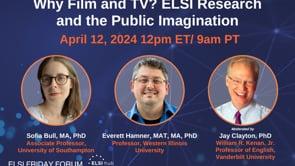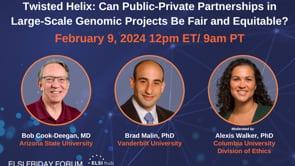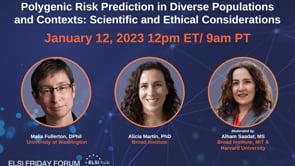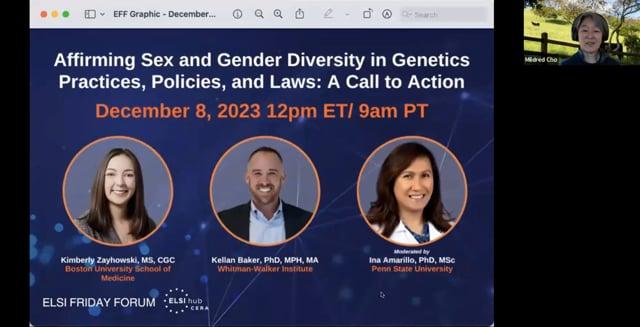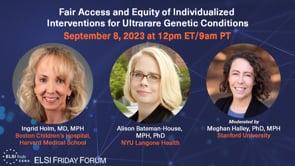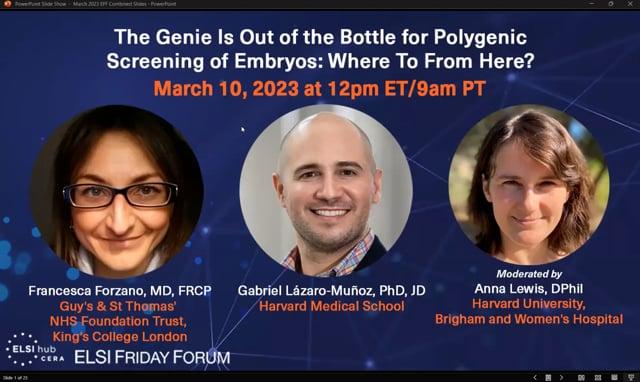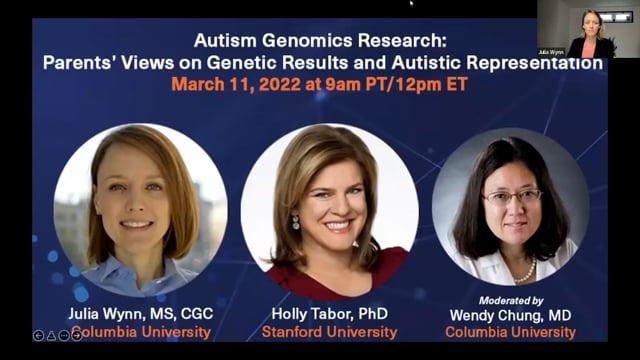Widening the Lens: Using Arts in ELSI Research
Using the arts in ELSI research can offer new insights and opportunities to engage with diverse participants in genomic research. ELSI scholars have creatively incorporated comics and whiteboard video to educate participants about issues such as consent and return of results and to convey concepts of biorepository research. This session will begin with a brief overview of how the arts can be employed to bolster public access and understanding of research studies and findings. This will be followed by presentations of two projects that utilized arts in ELSI research. The first project will focus on storytelling in genomic spaces and the use of community engagement and public deliberation to develop a responsive consent process for pediatric biobanks. The second project will focus on how a theoretical model “entertainment-education” (E-E) can explain why the use of artistic methods may be more effective for improving knowledge of patients and research participants. Join us for this panel discussion of ELSI collaboration with the arts.
• Sydney Cheek-O'Donnell, PhD, University of Utah
• Erin Talati Paquette, MD, JD, Northwestern University
• Erin Rothwell, PhD, University of Utah
• Moderated by Maya Sabatello, LLB, PhD, Columbia University
Originally aired Friday, April 9, 2021 at noon EST
For more information on this topic, please see Empirical Evaluation of Arts-Based Informational Aids for ELSI Issues in the Clinic and Beyond in the ELSIhub Collections series. This literature collection is curated and explained by Collection Editors, Gretchen A. Case, PhD, MA, Associate Professor & Chief, Program in Medical Ethics and Humanities, Division of General Internal Medicine, Department of Internal Medicine, University of Utah School of Medicine and Darian Mikelle Hackney, JD Candidate, Program in Medical Ethics and Humanities Fellow, University of Utah S.J. Quinney College of Law.
The rapidly changing science of clinical genetics and the complexity of its associated ethical, legal, and social (ELSI) issues call for novel approaches to information delivery and education of healthcare professionals and the public. Compared to traditional communication methodologies, arts-based methods offer a way to reach a wider variety of audiences and engage them in multi-sensory, experiential learning. Among the arts, theatre and the visual arts, including video, photography, and graphic medicine (comic books and graphic novels on medical topics), have thus far been the most carefully studied to evaluate their utility as communication tools for clinical genetics and science topics more generally. Although this literature collection explores a variety of media, we focus substantially here on studies of graphic medicine and theatre. Graphic medicine has particular promise as a communication tool for ELSI issues because its combination of written language and images can be more appealing and easier to understand than written explanations alone. Theatre can include both observing and participating in scenarios depicting the practice of clinical genetics, which is important in emphasizing that each person in a clinical scenario has an active role in any decision-making. This collection examines the potential of arts-based learning aids to convey scientific and medical information and explore attitudes about ELSI issues in clinical genetics, such as informed consent and research participation.
Tags
Videos in Series
-
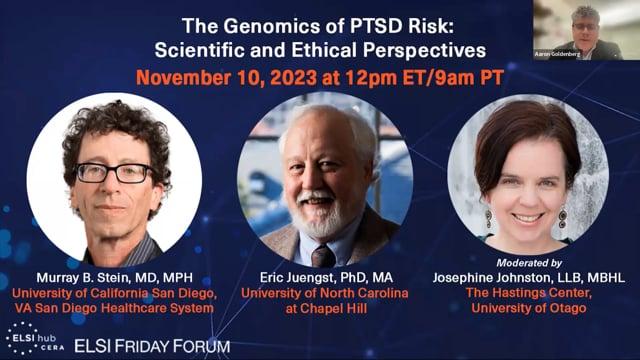
ELSI Friday Forum - The Genomics of PTSD Risk: Scientific and Ethical Perspectives
-
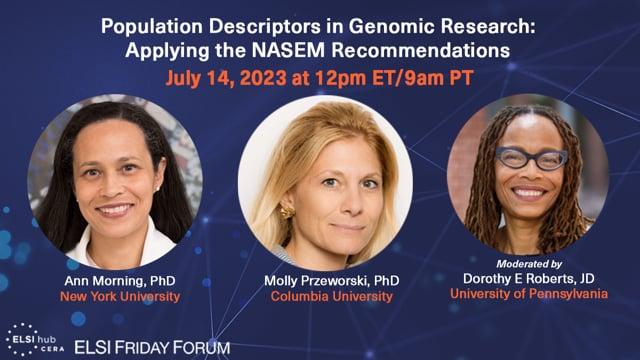
ELSI Friday Forum - Population Descriptors in Genomic Research: Applying the NASEM Recommendations
-
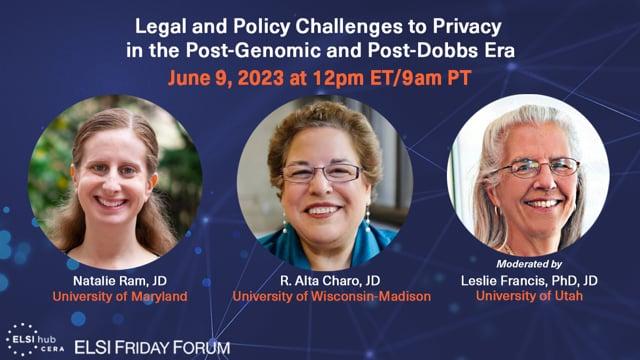
ELSI Friday Forum - Legal and Policy Challenges to Privacy in the Post-Genomic and Post-Dobbs Era
-
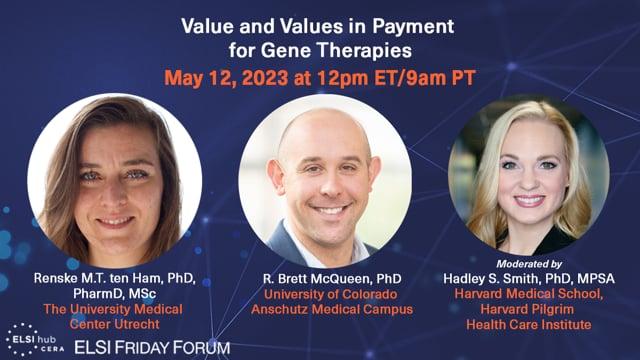
ELSI Friday Forum - Value and Values in Payment for Gene Therapies
-
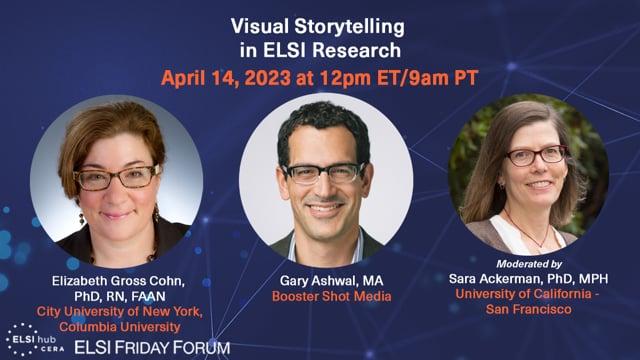
ELSI Friday Forum - Visual Storytelling in ELSI Research
-
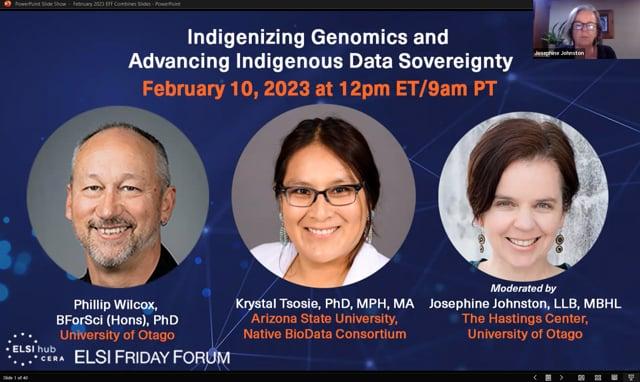
ELSI Friday Forum - Indigenizing Genomics and Advancing Indigenous Data Sovereignty
-
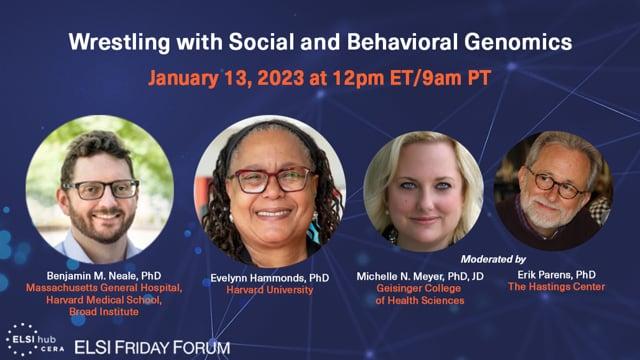
ELSI Friday Forum - Wrestling with Social and Behavioral Genomics
-
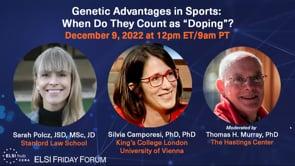
ELSI Friday Forum - Genetic Advantages in Sports: When Do They Count as "Doping"?
-
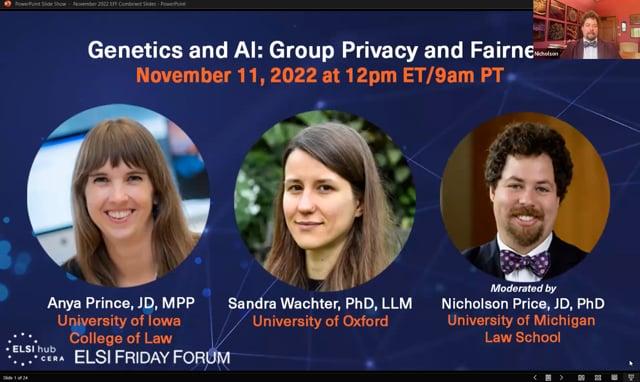
ELSI Friday Forum - Genetics and AI: Group Privacy and Fairness
-
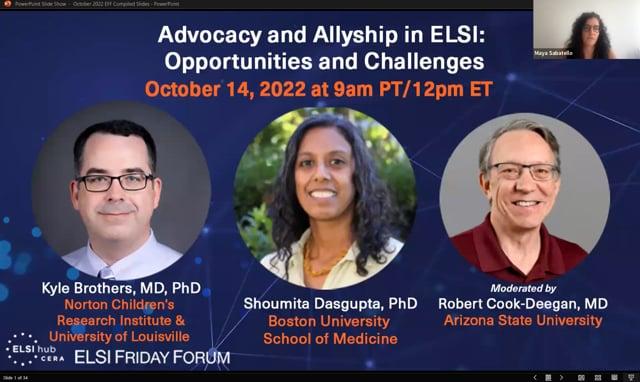
ELSI Friday Forum - Advocacy and Allyship in ELSI: Opportunities and Challenges
-
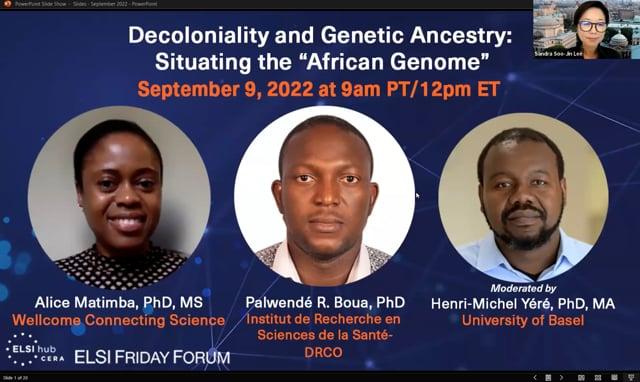
ELSI Friday Forum - Decoloniality and Genetic Ancestry: Situating the "African Genome"
-
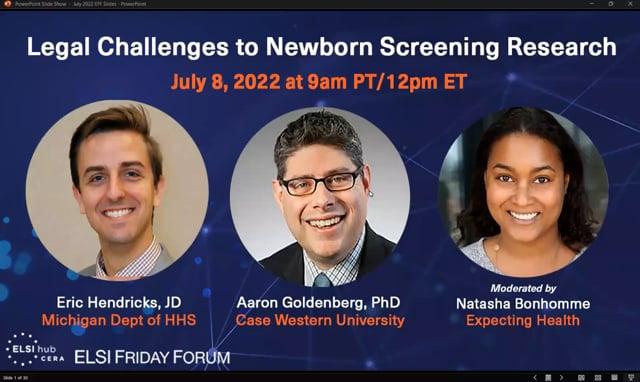
ELSI Friday Forum - Legal Challenges to Newborn Screening Research
-
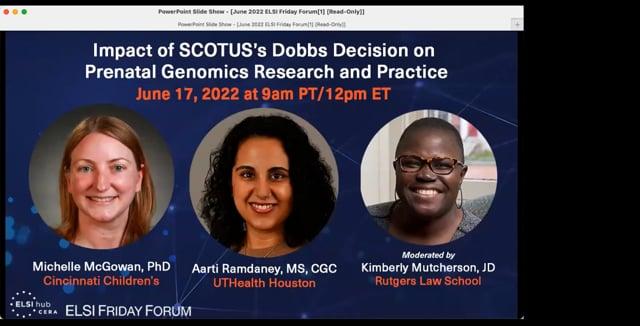
ELSI Friday Forum - Impact of SCOTUS's Dobbs Decision on Prenatal Genomics Research and Practice
-
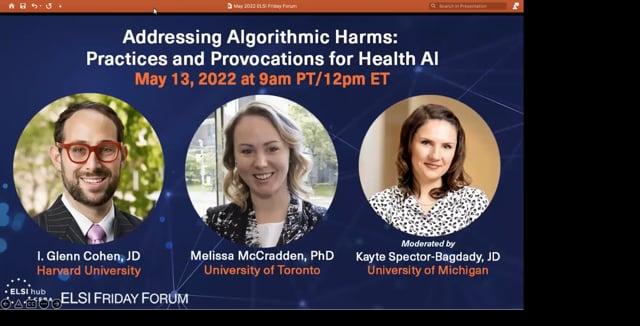
ELSI Friday Forum - Addressing Algorithmic Harms: Practices and Provocations for Health AI
-
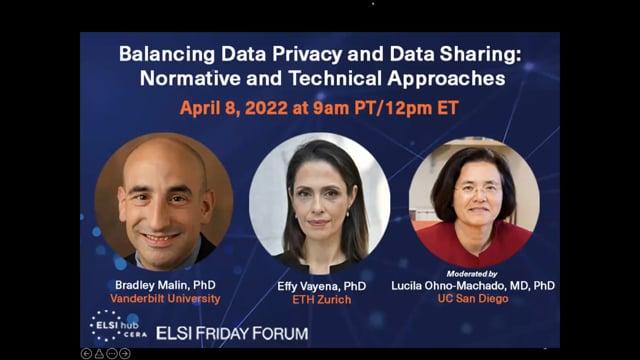
ELSI Friday Forum - Balancing Data Privacy and Data Sharing: Normative and Technical Approaches
-
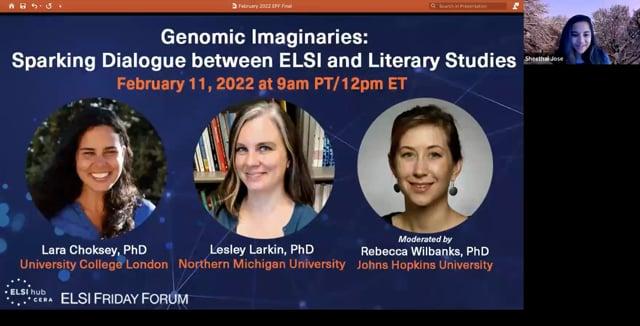
ELSI Friday Forum - Genomic Imaginaries: Sparking Dialogue between ELSI and Literary Studies
-
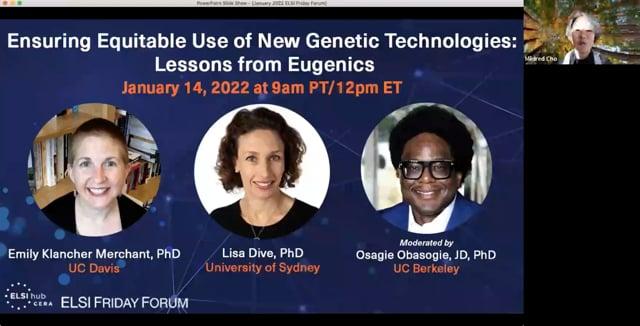
ELSI Friday Forum - Ensuring Equitable Use of New Genetic Technologies: Lessons from Eugenics
-
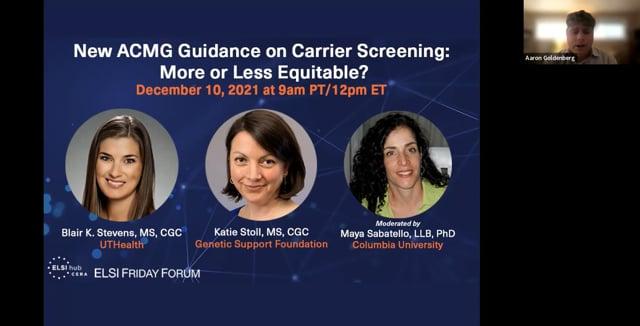
ELSI Friday Forum - New ACMG Guidance on Carrier Screening: More or Less Equitable?
-

ELSI Friday Forum - Benefit-sharing and Pharmaceutical Development in Africa: What Does Equity Mean?
-
ELSI Friday Forum - Genomic Data Sharing: Putting Principles and Policy into Practice
-
ELSI Friday Forum - Current Legal Challenges to Abortion: Implications for Prenatal Genetics
-
ELSI Friday Forum - Ethical Challenges in Novel Gene Therapies for Sickle Cell Disease
-
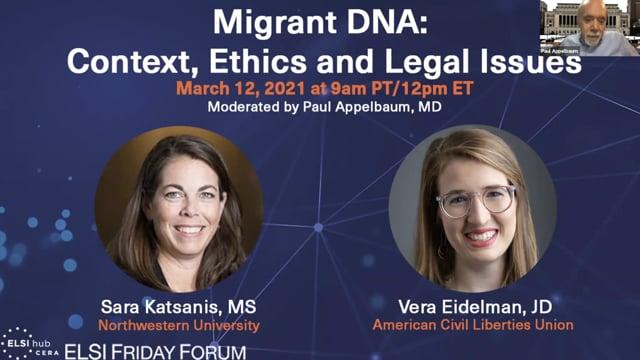
ELSI Friday Forum - Migrant DNA: Context, Ethics and Legal Issues
-
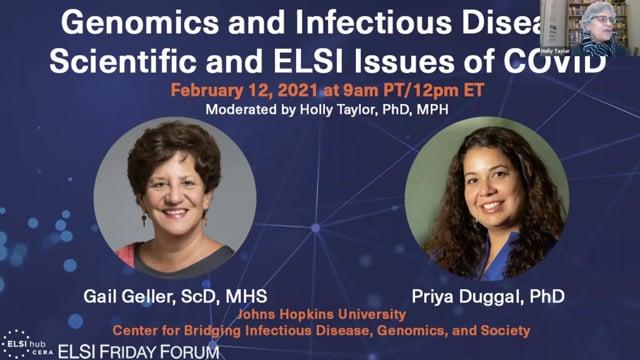
ELSI Friday Forum - Genomics and Infectious Disease: Scientific and ELSI Issues of COVID
-
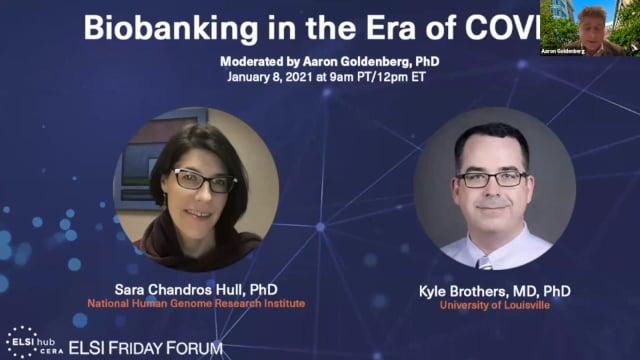
ELSI Friday Forum - ELSI Friday Forum: Biobanking in the Era of COVID
-
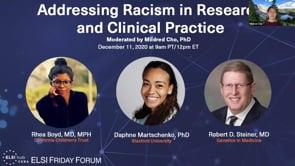
ELSI Friday Forum - Addressing Racism in Research and Clinical Practice
-
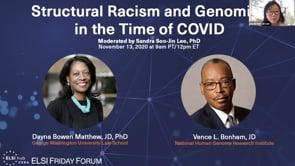
ELSI Friday Forum - ELSI Friday Forum: Structural Racism and Genomics in the Time of COVID

